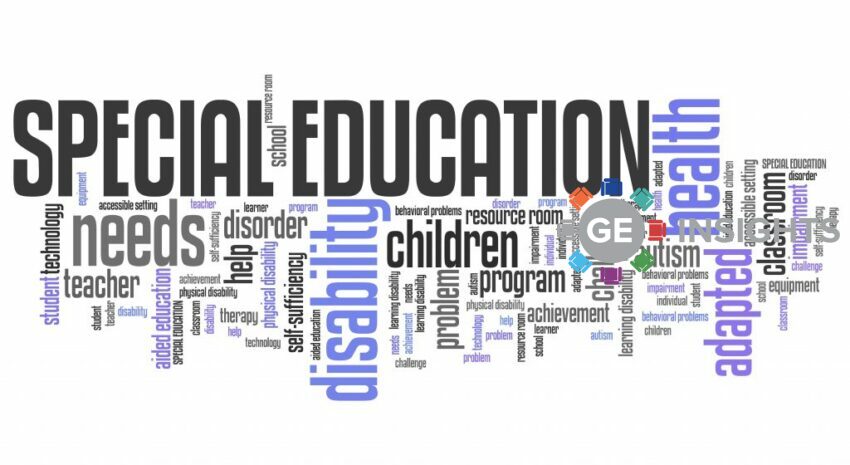Multiple studies have highlighted health inequalities that disproportionately affect Black and Minority Ethnic (BAME) communities.
Issues have been identified across the entire lifespan, from increased dental disease in childhood, poor experiences for black women using maternity services, to low numbers of elderly black people using mental health services.[1]
The Caribbean & African Health Network (CAHN) aims to end health inequalities for Caribbean and African people in a generation.[2]
This case study will highlight the work CAHN is carrying out to identify structural and systemic barriers, and how they continued to deliver their services throughout the Covid-19 pandemic.
Issues Facing BAME Communities
According to Charles Kwaku-Odoi, Chief Officer at CAHN, the black community exists at the intersection of poverty, racism, and health inequality.[2]
These issues can exacerbate the mental health needs of individuals, as well as disproportionately impacting their access to mental health support services for the black community.
Cultural insensitivity, poverty and associated experiences, such as violence and criminal injustice encourage conscious and unconscious bias. This can act as a barrier to the black community accessing mental health care and support.
Ethnic inequalities resulting from racial discrimination can also lead to health issues such as depression, or manifest themselves physically, for example, high blood pressure.[4]
Studies into conscious and unconscious bias carried out in 2014 found that there was:

A greater uncertainty in diagnosis of emotional problems and depression in black African and African Caribbean patients.

A greater focus on physical problems for black African and African Caribbean patients suggesting the need for the development of a mental health model of depression presentation.

The need for specification in detecting depression in black African and African Caribbean communities in both countries[4]
CAHN’s Mission
CAHN describe their mission as to lead strategic engagement to change the unhelpful practices of service providers, commissioners, and member organisations to influence policy and practice to ensure racial and social justice is a focus of health and other public sector service reforms in the UK.[2]
They carry their mission in five ways:
Lead
CAHN lead strategic engagement, articulating the needs of the community with an evidence base. They galvanise the community to respond to consultations and influence policy and practice; challenging the myth that the black community are hard-to-reach.
Enhance
They work with community groups and member organisations to reduce duplication and maximise their impact, making them more effective at achieving their objectives.
Educate
CAHN raise awareness about prevention, early detection, effective self-care and self-management. They provide commissioners and service providers with insight and cultural awareness of the black community.
Support
CAHN support a range of initiatives that bring communities together and build resilience. They broker collaborations among organisations to complement and promote partnership working. CAHN work alongside member organisations to strengthen their governance and support sustainability planning.
Advocate
They work to ensure the voice of the Black community is represented at decision-making tables, volunteers from a range of specialities support the most vulnerable in our community.[3]
CAHN and Covid-19
A key component of CAHN’s strategic objective is to provide structures and resources to support the mental and emotional health of the African and Caribbean community.
This gained new significance due to the disproportionate impact of the Covid-19 pandemic on the black community.
“The morbidity and mortality rates by Covid-19 in the BAME community are the highest among many other populations, for example it is 6-fold higher compared with white people.”
Dr Mohammed Kamara
CAHN created their counselling service to respond to the increased demand for mental health support from the Caribbean and African community because of the pandemic.
The counselling service offers culturally competent, racially sensitive and multilingual mental health support to the community which acknowledges the dehumanising trauma of racism and systemic inequalities.[2]
The service has supported almost 150 cases since its inception. Helping people with a range of issues, such as those dealing with bereavement, domestic violence, relationship issues, and mental health difficulties.
Due to the pandemic, sessions are offered remotely via Zoom, WhatsApp, Microsoft Teams and over the phone.
As lockdowns have eased and with clients showing a willingness for it, there are plans to offer face to face sessions, with language support offered.
The service offers 8 – 12 sessions but this can increase to about 20 sessions depending on the complexity of the issues presented. Clients have seen often present multiple issues, and there are additional sessions available if required.
Continued Work
In January 2021, CAHN Bereavement Peer Support Group launched to offer ongoing bereavement support for current and previous clients.
CAHN also run an Employee Assistance Programme, as most organisations offer “generic counselling support that does not meet the needs of their black employees.”[2]
The service exists to help organisations better support their black employees through the lens of racial trauma and its impact on their wellbeing, sense of belonging in the workplace, and effectiveness at work.
CAHN’s Employee Assistance Programme is a ‘bolt-on’ service to existing Employee Assistance Programmes. It is designed to offer tailored support for black employees that is culturally competent, racially sensitive and trauma-informed.
[1]Bradford District NHS. 2016. Race Evidence of Health Inequalities Affecting Black and Minority Ethnic People.
[2]Kwaku-Odoi, Charles. 2021. Chief Officer, Caribbean & African Health Network. Providing Culturally Competent and Racially Sensitive Mental Health Support.
[3]CAHN.org.uk. 2021. Our Vision.
[4]Race Equality Foundation. 2020. Mental Health Report.
[5]CAHN.org.uk. 2021. Dr Mohammed Kamara. Vitamin D & Covid-19.
Register FREE to access 2 more articles
We hope you’ve enjoyed your first article on GE Insights. To access 2 more articles for free, register now to join the Government Events community.
(Use discount code CPWR50)




